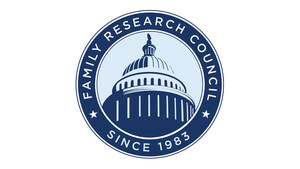WASHINGTON, May 31, 2012 Family Research Council (FRC) today criticized a decision by the U.S. Court of Appeals for the First Circuit striking down Section Three of the Defense of Marriage Act (DOMA), which defines marriage as the union of one man and one woman for federal law. FRC filed an amicus curiae ("friend of the court") brief in the case, known as Gill v. Office of Personnel Management. Today's ruling by a three-judge panel upheld a lower court decision issued in July 2010.
(Logo: http://photos.prnewswire.com/prnh/20080930/FRCLOGO)
Family Research Council President Tony Perkins released the following statement:
"Today's decision was disappointing but leaves us with hope that DOMA will be upheld when it is reviewed by the United States Supreme Court.
"FRC has always argued that DOMA should be reviewed under a level of scrutiny lawyers refer to as the 'rational basis test.' The First Circuit directly stated that using that standard 'the Gill plaintiffs cannot prevail.' We believe the Supreme Court will agree with us in applying the rational basis test and uphold DOMA.
"It has become too common for courts to show great disrespect to the American people and their representatives in arguing that efforts to defend marriage have been motivated by bias, bigotry, or animus. I note that the First Circuit opinion decisively rejects that idea. In reaching its decision, the Court stated it '[did] not rely upon the charge that DOMA's hidden but dominant purpose was hostility to homosexuality.' It also observed that 'traditions are the glue that holds society together.... The desire to retain them is strong and can be honestly held.'
"The Court was correct on this point. Congress enacted DOMA in 1996 by a vote of 85-14 in the Senate and a vote of 342-67 in the House of Representatives. It was then signed into law by President Bill Clinton. Those supporting DOMA represented a broad swath of American society who did not bear ill-will or animosity toward homosexuals.
"Citizens in 32 states have voted to uphold the historic and natural definition of marriage as the union of one man and one woman. Thirty states have actually inserted such a definition into the text of their state constitutions. It was completely appropriate for the Congress to anticipate this approval of marriage between a man and a woman and enact a congruent federal definition.
"We remain confident that in the end, the U.S. Supreme Court will recognize that DOMA is supported by numerous legitimate legislative purposes - all of which are consistent with our principles of federalism.
"The argument that the authors of our Constitution created or even implied a 'right' to redefine 'marriage' lies outside our constitutional law," concluded Perkins.
SOURCE Family Research Council
WANT YOUR COMPANY'S NEWS FEATURED ON PRNEWSWIRE.COM?
Newsrooms &
Influencers
Digital Media
Outlets
Journalists
Opted In





Share this article